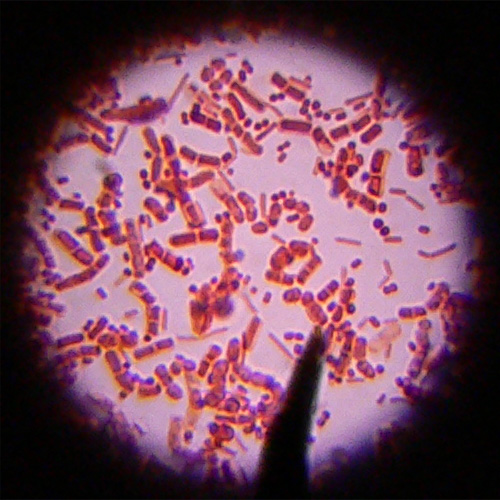Invisible to the naked eye, thousands of microorganisms inhabit every nook and cranny of the world, including our own bodies. From the day we are born, our skin is colonized by these mysterious microbes that contribute to our daily biological functions. However, not all of the organisms that populate our skin and gut are beneficial to our health.
Clostridium difficile (C. diff) is a strain of bacteria that has become notorious in recent years for causing several hospital-acquired infections. C. diff is typically found in the intestinal tract along with various other microbes. In healthy individuals, these gut bacteria are responsible for supporting digestive processes. However, when antibiotics disturb the delicate ratios of these strains, certain bacterial species can dominate over others. In the presence of these antibiotics, the body is no longer able to maintain these critical ratios, allowing C. diff to grow exponentially and cause a wide array of problems.
Over time, as C. diff continues to multiply, the bacterial cells begin to transition from their original rod-shaped physical states to a phase where they form spores. These spores are the primary mechanism through which C. diff is able to infect several individuals at a time, creating numerous problems for hospitals on a global basis. Common signs of a C. diff infection include diarrhea, bloody stool, and stomach discomfort. Historically, elderly people on antibiotics have been at the most risk of contracting a C. diff infection. Today, however, there has been a shift towards a higher infection incidence in younger age groups.
Image Source: Dr. David Phillips
There are many methods of targeting C. diff infections. Some frequently used antibiotics include fidaxomicin, vancomycin, and metronidazole. However, an increase in antibiotic resistance across the board has led researchers to begin looking into alternative treatment methods. One such treatment, fecal matter transplantation, has been found to cure C. diff infections in various patients. As the name suggests, the process involves moving a sample of beneficial fecal bacteria into the patient to effectively recolonize the intestinal region and rebalance the bacterial ratios. Less invasive transplant methods, such as pills, are presently being tested.
Annually, roughly 500,000 people suffer health complications caused by C. diff. C. diff infections are responsible for the deaths of over 25,000 people each year. Given the frequency and impact of these infections, federal organizations such as the CDC are investing a large amount of resources into testing new, viable treatments. Greater research into C. diff infection prevention has continued to fuel the discussion on the impact of microorganisms on our daily lives as well as the undeniable prospect of broad-scale antibiotic resistance.
Feature Image Source: Bacteria by Umberto Salvagnin










